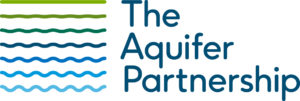Promoting the benefits of sustainable drainage in strategic planning
July 27, 2020
Earlier this year a major five-year £500,000 project was launched to help safeguard the chalk aquifer of the South Downs that supplies water to 1.2m people and is under increasing threat from climate change.
 The Aquifer Partnership (TAP) will work to protect groundwater in the Brighton Chalk Block from pollution, as well as increase resilience to climate change and extreme weather events that can cause flooding and drought.
The Aquifer Partnership (TAP) will work to protect groundwater in the Brighton Chalk Block from pollution, as well as increase resilience to climate change and extreme weather events that can cause flooding and drought.
Led by a partnership between the South Downs National Park Authority, Brighton & Hove City Council, Southern Water, and the Environment Agency, the wide-reaching programme will work with residents, farmers, landowners, and schools across the Brighton, Hove and Lewes area to safeguard our drinking water.
It comes as there is a pressing need to tackle rising nitrate levels in groundwater that leaches into the aquifer from urban and rural sources such as road run-off and fertilisers
The Aquifer Partnership builds on the success of Brighton ChaMP for Water project, which was established in 2016 to protect and improve the quality of groundwater in the chalk landscape around Brighton.
With the provision of “eco-system services” such as drinking water a core element of the Local Plan, Susie Howells, TAP’s Partnership Development Manager, looks at the emerging benefits of sustainable drainage – using plant power to help naturally cleanse polluted water.
 Sustainable Drainage (SuDS) is designed to use natural processes to reduce flooding and prevent groundwater pollution by storing and treating polluted water and silts running off impermeable surfaces, such as roads and car parks.
Sustainable Drainage (SuDS) is designed to use natural processes to reduce flooding and prevent groundwater pollution by storing and treating polluted water and silts running off impermeable surfaces, such as roads and car parks.
SuDS clean water naturally by slowing and holding it to allow time, sunlight, vegetation and bacteria in the roots of plants and soil to break down pollutants.
Techniques include swales, bioretention systems, green roofs, permeable paving, tree pits, basins, ponds and wetlands.
They are excellent for mitigating flooding, and for nature and people – encouraging biodiversity and transforming public space. SuDS work best when designed as an integral part of a development, when considered at the start of the project and in the context of local water catchments. SuDS align well with climate change mitigation and adaptation policies, with green infrastructure, and ecosystem service plans, promoting resilience to flooding, pollution and biodiversity loss.
It’s not just new developments and road schemes. The cumulative impact of small residential extensions and paved gardens add to impermeable surface area, increasing local flood risk.
While not yet legally required in England, the National Planning Policy Framework (NPPF) expects sustainable drainage (SuDS) to be considered where appropriate in major developments, with NPPF Practice Guidance providing clarification in managing flood risk and securing SuDS.
Local policy promotes the use of SuDS in new developments (Policy SD50 Sustainable Drainage Systems). The SDNPA’s Local Plan states: “Pollution pressures arise in part from urban and rural surface water run-off that represent key challenges in meeting the Water Framework Directive. Therefore, the Authority expects that pollution prevention measures, water efficiency measures to reduce surface water run-off, and sustainable drainage measures are incorporated into new development, in accordance with policies SD48: Climate Change and Sustainable Use of Resources and SD50: Sustainable Drainage Systems.”
 All new developments are considered in the context of city or regional strategic plans, but despite its role as a visible, practical way of meeting multiple policy objectives, there remain very few good quality SuDS in new developments in the Brighton, Hove and wider region. While the policy drivers exist, there are few legal requirements. Lack of awareness and capability, combined with perceptions of higher cost or difficulty, have led to a disappointing absence of SuDS locally.
All new developments are considered in the context of city or regional strategic plans, but despite its role as a visible, practical way of meeting multiple policy objectives, there remain very few good quality SuDS in new developments in the Brighton, Hove and wider region. While the policy drivers exist, there are few legal requirements. Lack of awareness and capability, combined with perceptions of higher cost or difficulty, have led to a disappointing absence of SuDS locally.
Through urban walkovers in Source Protection Zones and partnership work, The Aquifer Partnership (TAP) has identified sites in Brighton and Lewes to promote SuDS. They are pushing groundwater protection up the agenda with workshops and training to encourage greater integration of SuDS in the urban environment.
To find out more, please contact Susie Howells at Susie.Howells@southdowns.gov.uk
